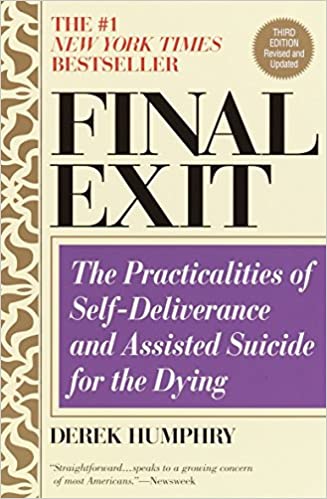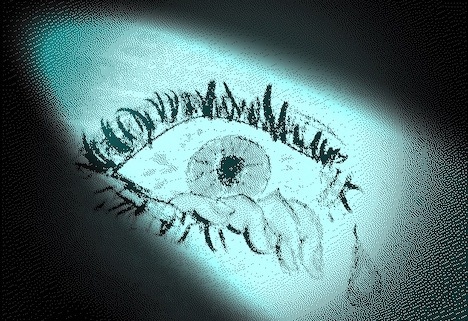Before I begin, please know that this post is not an op-ed article. I’m merely presenting facts surrounding suicide investigations involving the book “Final Exit.”
Those of you who attended homicide Detective Jeff Locklear’s presentations last week at Virtual MurderCon heard him speak about sometimes finding copies this book at suicide scenes.
Final Exit, the book
In the early 1990s, Derek Humphry published Final Exit. The book is a “how-to” guide for people seeking to commit a successful suicide.
In the book, Humphries highlighted four types of suicide—passive euthanasia, self-deliverance, assisted suicide, and active euthanasia.
- Passive euthanasia – the disconnection of life support systems and/or equipment.
- Self-deliverance – the taking of ones own life.
- Assisted suicide – a person ingests a deadly dose of medication supplied by a physician.
- Active euthanasia – death brought about by a physician who personally injects a lethal drug into a person’s bloodstream.
The author encourages people to doctor-shop until they find one who shares the view that suicide could be the proper course of action. He suggests that people considering assisted suicide conduct a bit of surveillance by examining a doctor’s waiting room to see if “magazines are current and that the staff is friendly and helpful,” signs that the doctor could be sympathetic and compassionate, and not simply “running a business.”
 Readers of “Final Exit” learn that it’s a good idea to underline or highlight passages in the book, and even to sign their names inside. Then they’re instructed to place the book nearby when they commit the act. This is to show police that the suicide was an act of euthanasia and not a homicide. However, those who do assist may still be held criminally responsible if they supplied the drug, the plastic bag that covered the head of the victim, or the firearm that killed. By the way, Humphry mentions the use of the plastic bag combined with medication as a highly favored means of suicide.
Readers of “Final Exit” learn that it’s a good idea to underline or highlight passages in the book, and even to sign their names inside. Then they’re instructed to place the book nearby when they commit the act. This is to show police that the suicide was an act of euthanasia and not a homicide. However, those who do assist may still be held criminally responsible if they supplied the drug, the plastic bag that covered the head of the victim, or the firearm that killed. By the way, Humphry mentions the use of the plastic bag combined with medication as a highly favored means of suicide.
Humphry instructs those who assist to not touch the dying person. However, if they do he says to lie about it if questioned by authorities, and that you gave absolutely no encouragement. He also went on the say that the person who’s present at the time of the suicide should NOT call 911. The latter instruction is to prevent EMS from initiating lifesaving procedures.
The Police Investigation
The presence of “Final Exit” at the scene should be properly documented by noting its position in the home, by photograph and/or video, as well as in the detective’s written notes.

Homicide Detective Jeff Locklear
As discussed by Detective Locklear during his MurderCon presentations, the mere presence of the book could be an important factor and should be treated as evidence. The book could contain the fingerprints and/or DNA of someone other than the victim, such as a person who assisted in the death.
As previously mentioned, there may be notations or underlined passages within the book. Therefore, officers should thoroughly examine it page by page for comparison to the manner of death and to the instructions found highlighted.
The book recommends that the suicidal person leave a signed note. Officers should search, as always, for written messages that may provide answers about the death.
Notes should always be examined for finger and palm prints and for handwriting comparison(s).
For comparison, fingerprints and palm prints should also be collected from friends and family members who’re close to the victim. Plastic bags and prescription bottles and medications should be collected. Fingerprint examinations should be conducted on the bags and bottles. Lifted prints are compared to those of the victim and to the prints of potential suspects. Remember, it is equally as important that police rule out potential suspects as it is for them to include someone as a possible perpetrator of a crime.
In all cases where copies of “Final Exit” are found, well, there’s the possibility that someone assisted in the death. And, that assistance could be illegal.
*If you or anyone you know is in crisis, please call the National Suicide Hotline at 800-273-TALK (8255).


